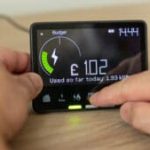
Consumer confidence has fallen to a new record low as people facing painful budget squeezes have become “exasperated” at the state of the economy.
A closely watched monthly survey of sentiment reversed a rebound in July to fall to its lowest level since records began in 1974. The index, compiled by GfK, has dropped three points this month as consumers battle runaway inflation, a growing tax burden and fail to secure wage increases in line with rising prices.
“These findings point to a sense of capitulation and financial events moving far beyond the control of ordinary people,” Joe Staton, client strategy director at GfK, said. “With headline after headline revealing record inflation eroding household buying power, the strain on the personal finances of many is alarming. Just making ends meet has become a nightmare and the crisis of confidence will only worsen with the darkening days of autumn and the colder months of winter.”
Household confidence surveys are a gauge of the future health of the economy, asking respondents about their spending expectations for the months ahead. The UK economy registered a 0.1 per cent GDP contraction in the three months to June and will have officially fallen into recession if growth turns negative in the third quarter.
All five of GfK’s sub-indices have fallen in August, including measures on future purchases, a consumer’s personal financial situation in the past 12 months and the coming 12 months. The August figures have wiped out a slight rebound in the survey measured in July. “A sense of exasperation about the UK’s economy is the biggest driver of these findings,” Staton said. The index fell to a record low in April, after Russia’s invasion of Ukraine, with a crucial sub-measure on the general economy declining every month since December last year.
Consumer prices inflation has hit double-digits for the first time since 1980 at 10.1 per cent and is ahead of forecasts from the Bank of England. The Bank estimates it will peak at 13.3 per cent this autumn, while forecasters such as Citigroup expect a 15 per cent peak next year. Bank of America’s analysts project a high of 14 per cent.
Household energy bills will triple in October compared with April, exceeding £3,600, and could climb to £5,000 next year. The Bank expects the economy to tip into recession at the end of the year, with the downturn persisting for 15 months. Linda Ellett, UK head of consumer markets at KPMG, said households and retailers were braced for “what is looming on the horizon. So far this year retail sales have somewhat defied the very low levels of consumer confidence. But a widespread reduction in spending ability will lead to drops in demand and changing buying behaviour, both of which will impact the high street and wider economy.
“The scale of the demand reduction remains unknown, but retailers know there will be various trade-down audiences and treat occasions. The key to weathering this storm is to try and capture and retain those customers, from those seeking out more value products through to those swapping meals out for premium-range meals.”
Read more:
Consumer confidence hits new low






